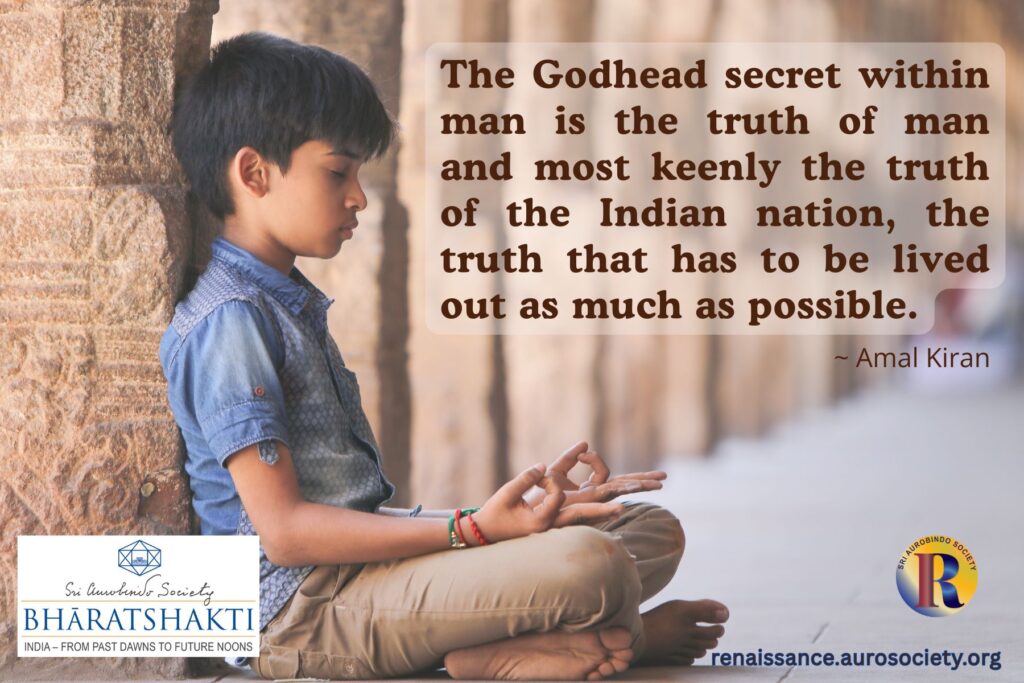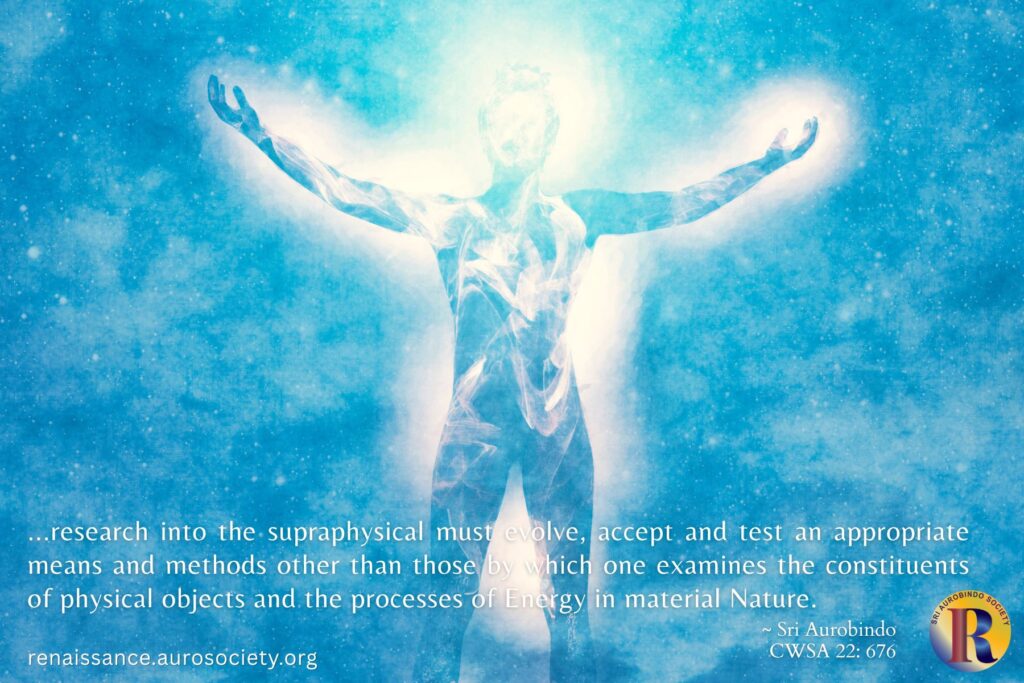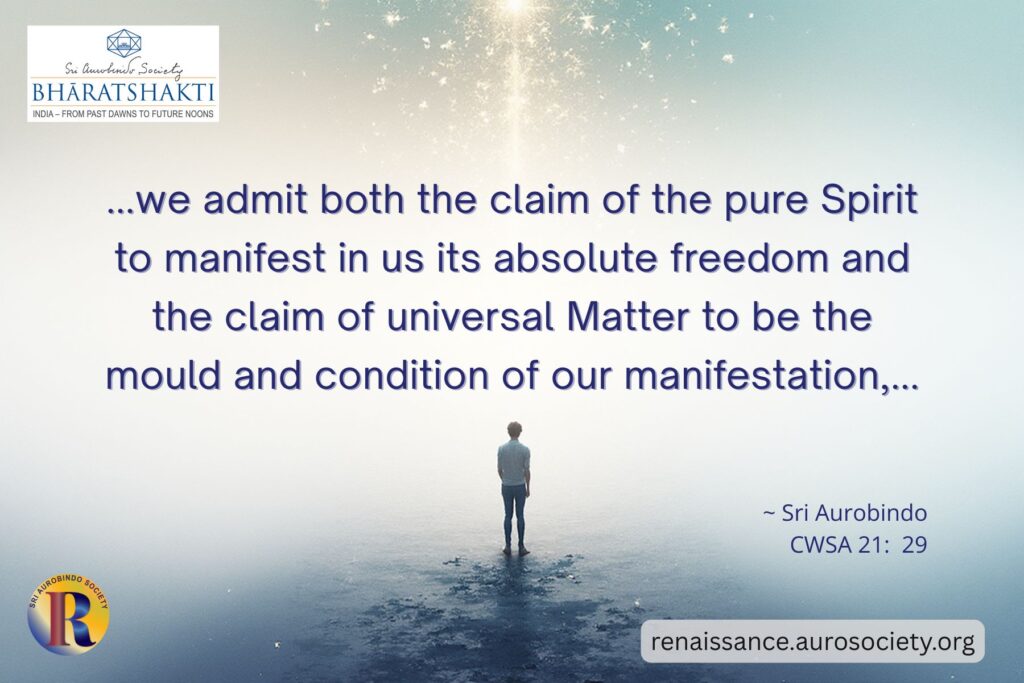Volume VI, Issue 6
Author: Rabindranath Tagore
Editor’s Note: Sri Aurobindo spoke of Rabindranath Tagore as “a wayfarer towards the same goal as ours in his own way” (CWSA, Vol. 27, p. 385). In this issue exploring a variety of topics under the larger theme of ‘Spirit and Forms of Indian Art‘, we feature some selections from Tagore’s writings.
These were published in the May 1961 issue of Mother India (Vol. XII, No. 4, pp. 40-43) — 1961 being the centenary year of the Kobiguru. The writings included here were translated by Sanat K. Banerji and Nolini Kanta Gupta. In his brief editorial remarks in the issue, K.D. Sethna wrote:
“What brought Tagore instant recognition in the West was the mystic vein in his writings. On the occasion of his hundredth birthday now being celebrated all over the world, we offer to our readers a few specimens of his prose and poetry where the poet blends with the mystic and passes judgment on his own life and work…The translations can hardly convey the rich melody and suggestiveness of the original Bengali.”

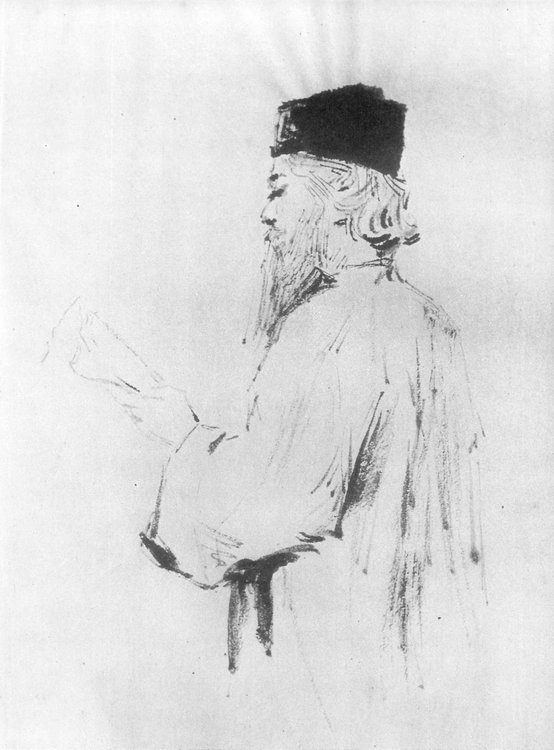
Sketch made by the Mother, 1916
Rabindranath on Himself – Some Fragments
Translated by Sanat K. Banerji
A Song
A secret have I shared with my flute alone,
A secret my flute alone has known.
A secret hung on my heart, that could be uttered to none,
I have whispered it into my flute alone.
In the depth of the night my eyes knew no sleep,
I have sat up gazing with the winkless stars.
I have passed the night thus, with no one to share my vigil.
Only the flute have I kept awake with my unending song.
I Have Loved This World
(Tagore wrote this on the occasion of his seventieth birthday celebrations)
I have loved this world, I have saluted all that is great; I have yearned for freedom, the freedom that comes of surrender to the Supreme, I have held the faith that the true truth of man is in that Cosmic Being who is ever seated in the hearts of men.
I once crossed beyond the confines of literary work, my sole preoccupation since my childhood days, in order that I might gather the first-fruits of my labour, the offerings of my sacrifice and dedicate them to that Cosmic Being. That has brought me opposition from without, but my heart has felt satisfied.
I have come as a pilgrim to this Holy Land of earth. Here the godhead of man holds the centre of the stage, in all countries, in every nation, in the history of all time. I have taken a quiet seat at the foot of that altar, and am even now engaged in the arduous task of wiping off my pride and egoism, my sense of difference with the All.
The Everlasting Me
When these walks no longer will carry the imprints of my feet
And my ferry will ply no more on this bank,
The bargainings are done, settled the credits and dues,
And ended my Journeyings to this noisy mart,–
What will it matter if you remember me not then,
Nor softly call my name as you gaze at the stars?
When the strings of my lyre become mute with the dust
And the briars creep on to my doors,
And the flower-beds wear the wild garb of grass
And heavy moss gathers along the slopes of the pool,
What will it matter if you remember me not then,
Nor softly call my name as you gaze at the stars?
This hall of music will be ringing with the flute as now,
The days too will pass as they pass today;
The ferry will fill with the men at the crossing,
Kine will roam, cow-boys play in yonder field.
What will it matter if you remember me not then,
Nor softly call my name as you gaze at the stars?
Who will say I am not there on that distant dawn?
In all that joyous game, this self of mine will play.
You will call me by another name, entwine me with other arms,
But the same eternal Me will be moving in your midst.
What will it matter if you remember me not then,
Nor softly call my name as you gaze at the stars ?
The Sun of the First Dawn
(composed shortly before his death)
The early sun on the first dawn of day
Had asked a question, as my being first appeared :
“Who art thou ?”
There was no reply.
The years crowded upon years.
The parting sun at the end of day voiced a final questioning,
On a silent eve by the shores of the western sea,
“Who art thou ?”
There was no reply.

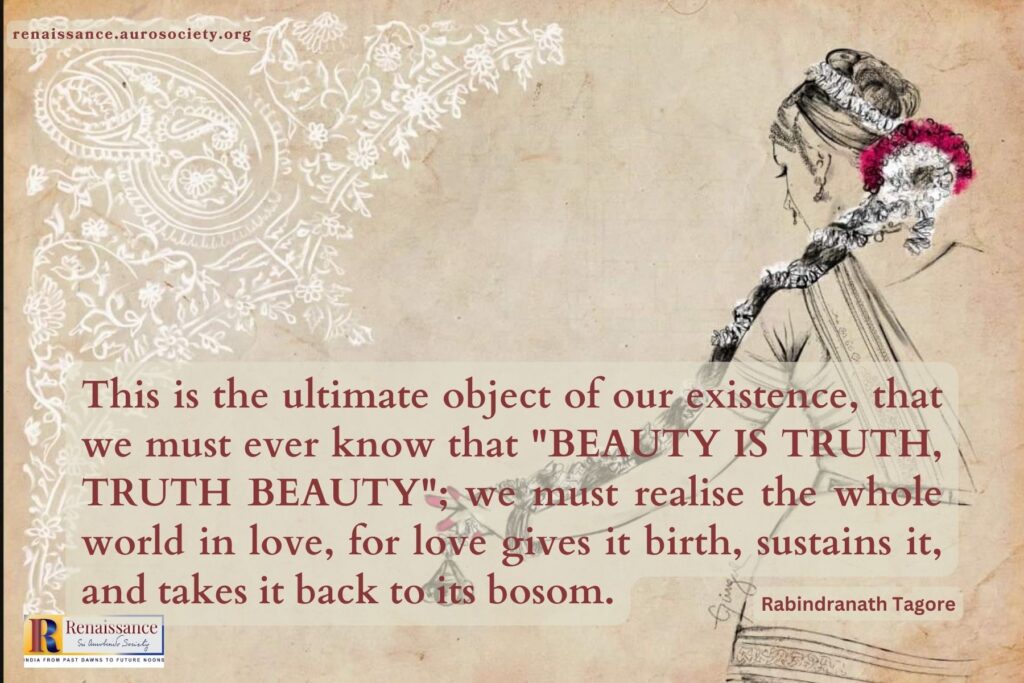
The Dancer’s Worship
Translated by Nolini Kanta Gupta
Have mercy, O merciful one! I bow to Thee, I bow!
I call upon Thee, O Peerless!
In the delight of dance
My soul rings out its heavings.
My body, in every limb, calls yearningly:
Lost is my lore in thy Voice
Pouring music all around into a new birth.
My adoration leaps out in music through every limb of mine,
Oh! this supreme pain that aches my soul,
Vibrates my heart,
The swell in the sea of Peace
Where Beauty awakes!
All my being, all my pain
Has built this adoration of mine;
May it not end in shame,
This life-offering at thy Feet.
I have not culled flowers from any woodland,
I have not gathered fruits,
Empty is my jar,
I have not filled it with holy water.
Into every limb of mine, my heart
Freed from all bonds
Pours out streams from the Beyond.
At Thy feet may it lose itself utterly,
In this sacred service of worship
My adoration leaps out in music
Through every limb of mine.

Read more by Rabindranath Tagore in Renaissance
Watch: BhāratShakti Webinar Recordings
Celebrating Tagore: “The song I came to sing…”
~ Research & Design: Beloo Mehra

